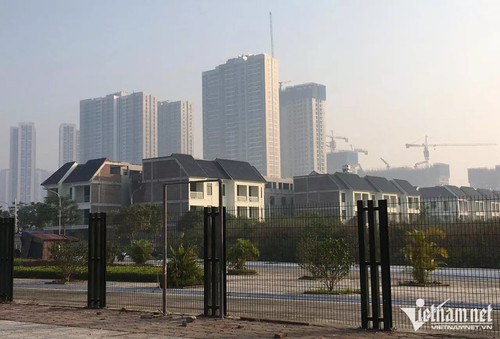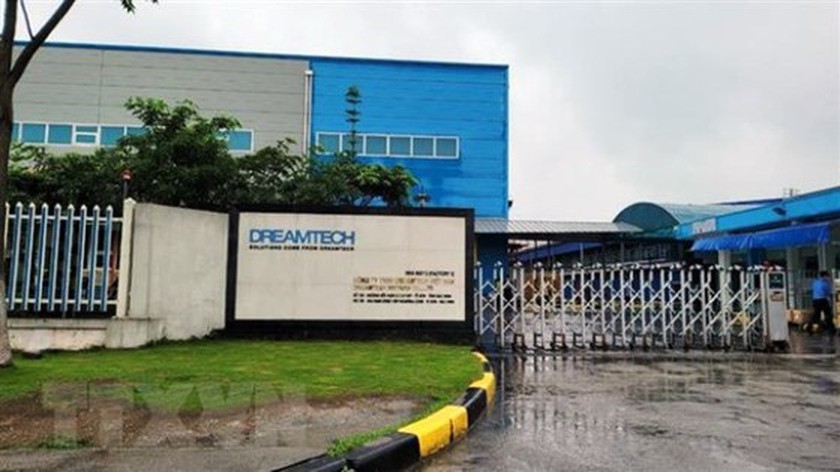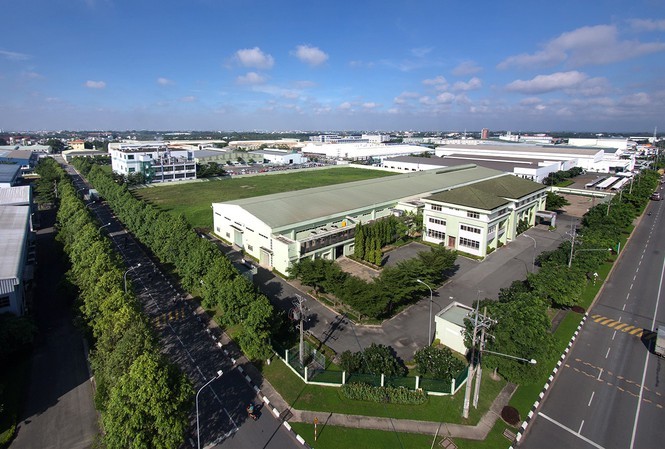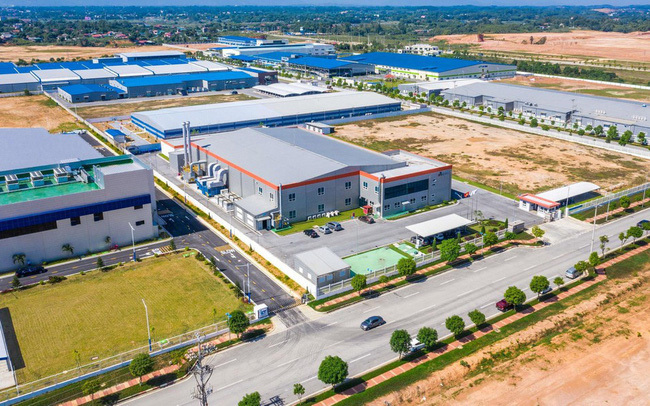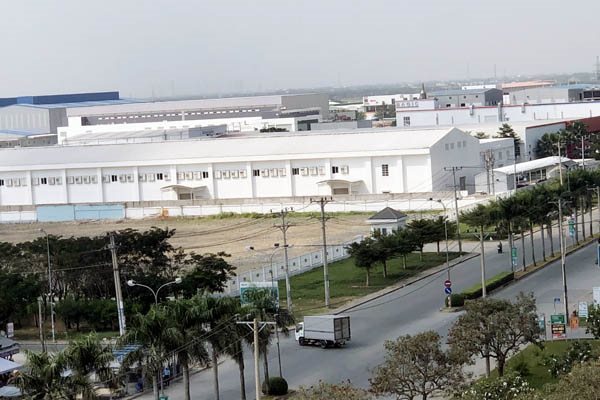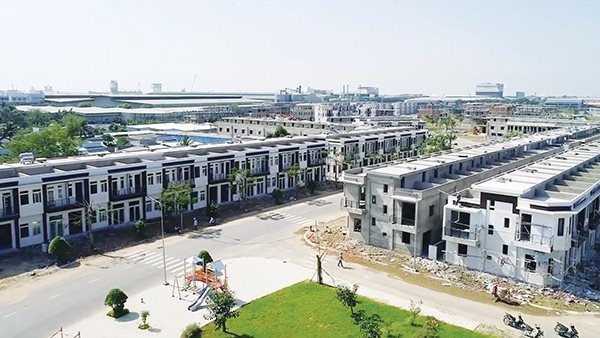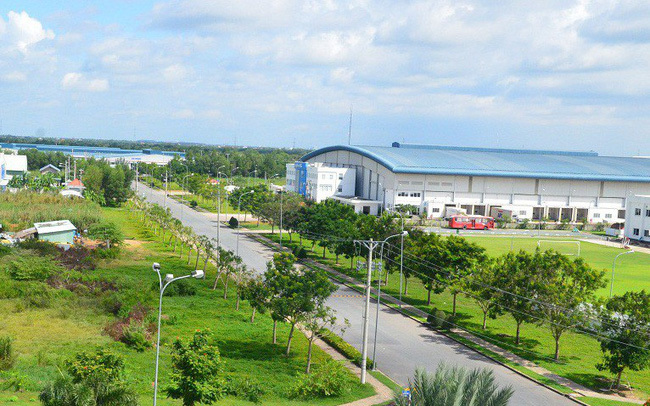- © Copyright of Vietnamnet Global.
- Tel: 024 3772 7988 Fax: (024) 37722734
- Email: [email protected]
IZ
Update news IZ
Complicated procedures discourage industrial real estate developers
As of early 2020, Vietnam had 335 industrial zones, of which 260 were operational with an occupancy rate of 75.7 percent.
Three workers killed in Bac Ninh factory fire
The deadly factory fire accident in the Northern Province of Bac Ninh killed three workers, said police investigators on April 17.
What is the key to development of VN's industrial zones?
While many IZs are left idle or have low occupancy rates, others are very selective in accepting tenants because they are located in advantageous positions and are well organized.
Vietnam's IZs expand in anticipation of new FDI wave
 Developing IZs is seen as a profitable business at this time as many foreign investors are leaving China and heading for Vietnam.
Developing IZs is seen as a profitable business at this time as many foreign investors are leaving China and heading for Vietnam.
IZ developers still make high profits amid Covid-19
 Industrial infrastructure companies are still thriving amid Covid-19, and are expected to continue to grow as Vietnam is one of the best destinations for investors in the post-epidemic period.
Industrial infrastructure companies are still thriving amid Covid-19, and are expected to continue to grow as Vietnam is one of the best destinations for investors in the post-epidemic period.
Time to bank on industrial parks and industrial property firms
 Following the prediction about a new strong FDI wave, real estate shares have been sought by investors.
Following the prediction about a new strong FDI wave, real estate shares have been sought by investors.
A repeat of the 2011-2013 real estate crisis?
 With purchasing power dropping dramatically and liquidity becoming alarminging weak, the real estate market is witnessing a repeat of the 2011-2013 crisis.
With purchasing power dropping dramatically and liquidity becoming alarminging weak, the real estate market is witnessing a repeat of the 2011-2013 crisis.
Industrial properties in city neighborhoods thriving
 Industrial real estate is believed to be the only segment which can continue to prosper in the current real estate market.
Industrial real estate is believed to be the only segment which can continue to prosper in the current real estate market.
VN real estate firms struggle to find ‘clean’ land
 Legal bottlenecks have affected the real estate market since the beginning of the year.
Legal bottlenecks have affected the real estate market since the beginning of the year.
Vietnam's industrial real estate sector heats up
 The development of the industrial real estate market will have a positive impact on other market segments such as houses and offices for rent.
The development of the industrial real estate market will have a positive impact on other market segments such as houses and offices for rent.
Industrial real estate thrives on FDI increase
 Existing factors in the market, especially strong FDI inflow, all are supporting the prosperity of the industrial real estate market.
Existing factors in the market, especially strong FDI inflow, all are supporting the prosperity of the industrial real estate market.
Industrial infrastructure mostly serves FIEs
 Vietnam has borrowed big money to develop industrial infrastructure, but this has mostly brought benefits to foreign invested IZs (industrial zones) and FIEs (foreign invested enterprises).
Vietnam has borrowed big money to develop industrial infrastructure, but this has mostly brought benefits to foreign invested IZs (industrial zones) and FIEs (foreign invested enterprises).
Will Vietnam be a new production base for the world?
 Vietnam has the opportunity to become a new production base for the world amid the US-China trade war.
Vietnam has the opportunity to become a new production base for the world amid the US-China trade war.
Industrial real estate developers see windfall as demand soars
 The rent in industrial zones (IZ) has increased rapidly. Some provinces in the eastern part of the south have no more land to lease, while investments in the processing and manufacturing industry continue to rise.
The rent in industrial zones (IZ) has increased rapidly. Some provinces in the eastern part of the south have no more land to lease, while investments in the processing and manufacturing industry continue to rise.
Production shift from China to Vietnam speeds up in trade war
 Vietnam is an ideal destination for foreign investors, including Chinese, despite China’s efforts to prevent capital flowing out of the country.
Vietnam is an ideal destination for foreign investors, including Chinese, despite China’s efforts to prevent capital flowing out of the country.
Tycoons gather strength for new game – industrial property
 Some large corporations with plentiful capital have decided to pour money into industrial real estate as they can see opportunity in the sector.
Some large corporations with plentiful capital have decided to pour money into industrial real estate as they can see opportunity in the sector.
Vietnam's industrial zone projects face obstacles
 Because of local agencies’ tardiness in setting up a land rental framework, the HCMC Hi-tech Park (SHTP) in the first four months of the year granted licenses to only two projects with registered capital of $5 million.
Because of local agencies’ tardiness in setting up a land rental framework, the HCMC Hi-tech Park (SHTP) in the first four months of the year granted licenses to only two projects with registered capital of $5 million.
Real estate market focuses on industrial zones
 The reports released by securities companies so far this year all show the bright prospects of the industrial real estate market segment.
The reports released by securities companies so far this year all show the bright prospects of the industrial real estate market segment.
Build-to-suit mini workshops favored by foreign enterprises
 Despite relatively high leasing fees, ready-made workshops are still being chosen by foreign investors, especially those from Japan and South Korea.
Despite relatively high leasing fees, ready-made workshops are still being chosen by foreign investors, especially those from Japan and South Korea.
New wave of investment expected in Industrial Zones
VietNamNet Bridge - Industrial real estate developers are busier than ever as they are expanding existing IZs and developing new ones in anticipation of a new FDI wave into Vietnam.
